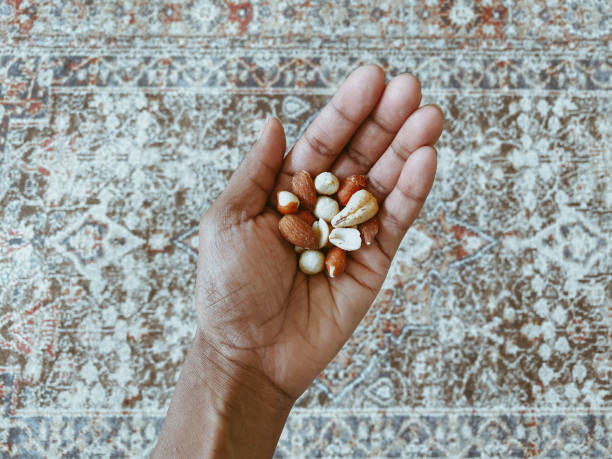
For long-term breast cancer survivors, nut consumption is associated with improved disease-free survival, according to a study published online Oct. 20 in the International Journal of Cancer. This could be beneficial for Black women who have an 80% five-year survival rate compared to 91% for white women.
Breast cancer survivors who ate more than one-half ounce of nuts per week had five-year survival rates of up to 95%, according to the study. This percentage is higher than those without nuts in their diet. Additionally, 94% of the women who consumed nuts on a regular basis did not experience a recurrence, or return, of their breast cancer within five years of recovery from their initial illness, researchers note.
RELATED: Crunch On These 5 Nuts For Better Diabetes Management
Why are nuts good for your health?
There are many health benefits to including nuts in your diet."Nuts are rich in several nutrients, including unsaturated fatty acids, protein, fiber, vitamins, minerals and other bioactive constituents, such as phytosterols and phenolic compounds, that have known health benefits," Dr. Xiao-Ou Shu, a professor of cancer research at Vanderbilt University in Nashville says.
Many nuts and seeds contain omega-3 fatty acids, which according to researchers are anti-inflammatory, help prevent cancer and protect cell structures and walls.
The benefits of consuming nuts on a regular basis don't stop with the prevention of breast cancer, however. Nuts can provide a range of health benefits and prevent other forms of cancer.
"Many mechanisms of cancer development, such as excessive oxidative stress and chronic inflammation, are shared across cancers," Shu adds."Thus, we speculate that benefits of nut consumption that we observed for breast cancer survivors can be extended to survivors of other cancer, though direct evidence on this is needed."
Which nuts should you add to your diet?
Here are nine nuts you should add to your diet:
1. Almonds

Almonds are tree nuts that may improve your cholesterol levels. Although evidence is insufficient, studies show that an almond-rich diet can reduce your "bad" cholesterol (LDL), total cholesterol and oxidized LDL cholesterol. This promotes heart health.
Additionally, consuming almonds as part of a low-calorie diet can promote weight loss and lower blood pressure in those who are overweight and obese.
Almonds are also beneficial to people with diabetes as they lower the rise in blood sugar that typically occurs after a meal by as much as 30%. Almonds also reduce inflammation in people who have type 2 diabetes.
Almonds also support the growth of
beneficial gut bacteria, including Bifidobacteria and Lactobacillus.
2. Pistachios

Pistachios are high in fiber and can increase your "good" cholesterol (HDL). Pistachios also improve common heart disease risk factors including blood pressure, weight oxidative status (blood levels that contribute to heart disease).
Much like almonds, pistachios can also reduce the spike in your blood sugar after a meal.
3. Walnuts

Walnuts are filled with omega-3 fatty acids alpha-linolenic acid (ALA), which helps improve heart disease risk factors. Studies show that consuming walnuts can significantly reduce your total cholesterol and "bad" cholesterol and increase your "good" cholesterol.
Walnuts also promote heart health including blood pressure and the normal flow of blood through your circulatory system.
What's more studies show that walnuts can reduce inflammation that may contribute to chronic diseases and have beneficial effects on the brain.
RELATED: 5 Reasons To Go Nuts…For Nuts!
4. Cashews

Cashews are also a part of the tree nut family. They can improve blood pressure in people with metabolic syndrome.
Adding cashews to your diet will also result in lower blood pressure and increased levels of "good" cholesterol.
5. Pecans
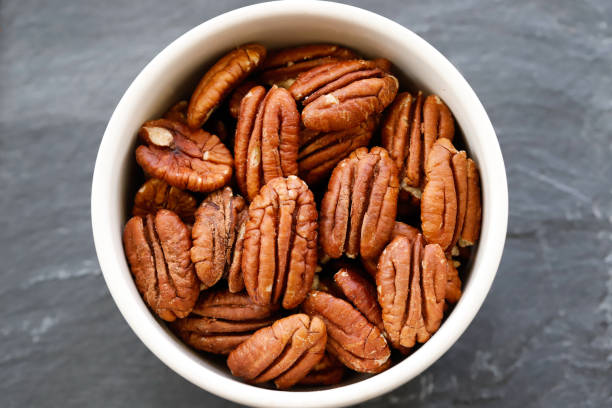
A few studies have shown that pecans can lower "bad" cholesterol and improve
the antioxidant profiles in your blood.
6. Macadamia nuts
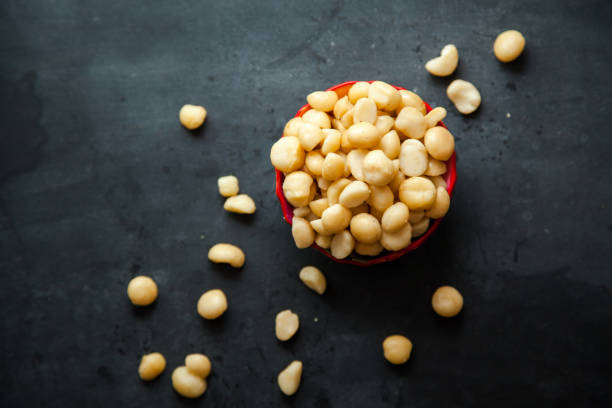
Due to their high amounts of monosaturated fat, macadamia nuts have the ability to reduce heart disease risk factors.
7. Brazil nuts
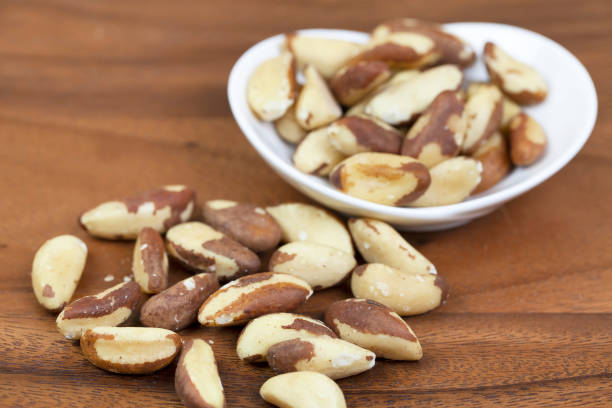
Brazil nuts are a great source of selenium, which may be beneficial to people with kidney disease, who are often selenium deficient.
Brazil nuts can also help reduce cholesterol levels, oxidative stress and inflammation.
8. Hazelnuts
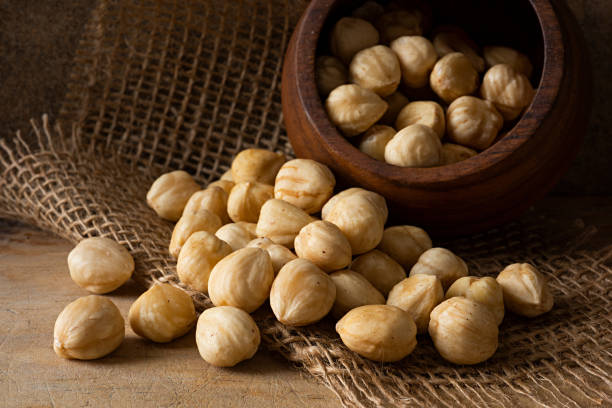
Hazelnuts are rich in vitamin E and can lower “bad” LDL cholesterol, triglycerides, inflammation.
Hazelnuts can also improve your blood vessel function.
9. Peanuts

Although peanuts belong to the legume family, they have benefits similar to tree nuts including heart disease and diabetes.
One study found that women who ate peanut butter more than five times a week had lower rates of type 2 diabetes.
Consuming peanuts during your pregnancy may also reduce the risks of asthma and allergies in your children.
When choosing peanuts, choose plain, unsalted, unflavored peanuts. Peanuts that contain large amounts of added oils, sugar and other ingredients will eliminate any health benefits you could gain from eating them.
A diet that consists of nuts, legumes, and seeds is a great way to prevent breast cancer and any other cancer or health-related complications. Just remember that they can also be high in calories. Therefore you should moderate your intake. Try consuming them in small quantities several times throughout the week.








